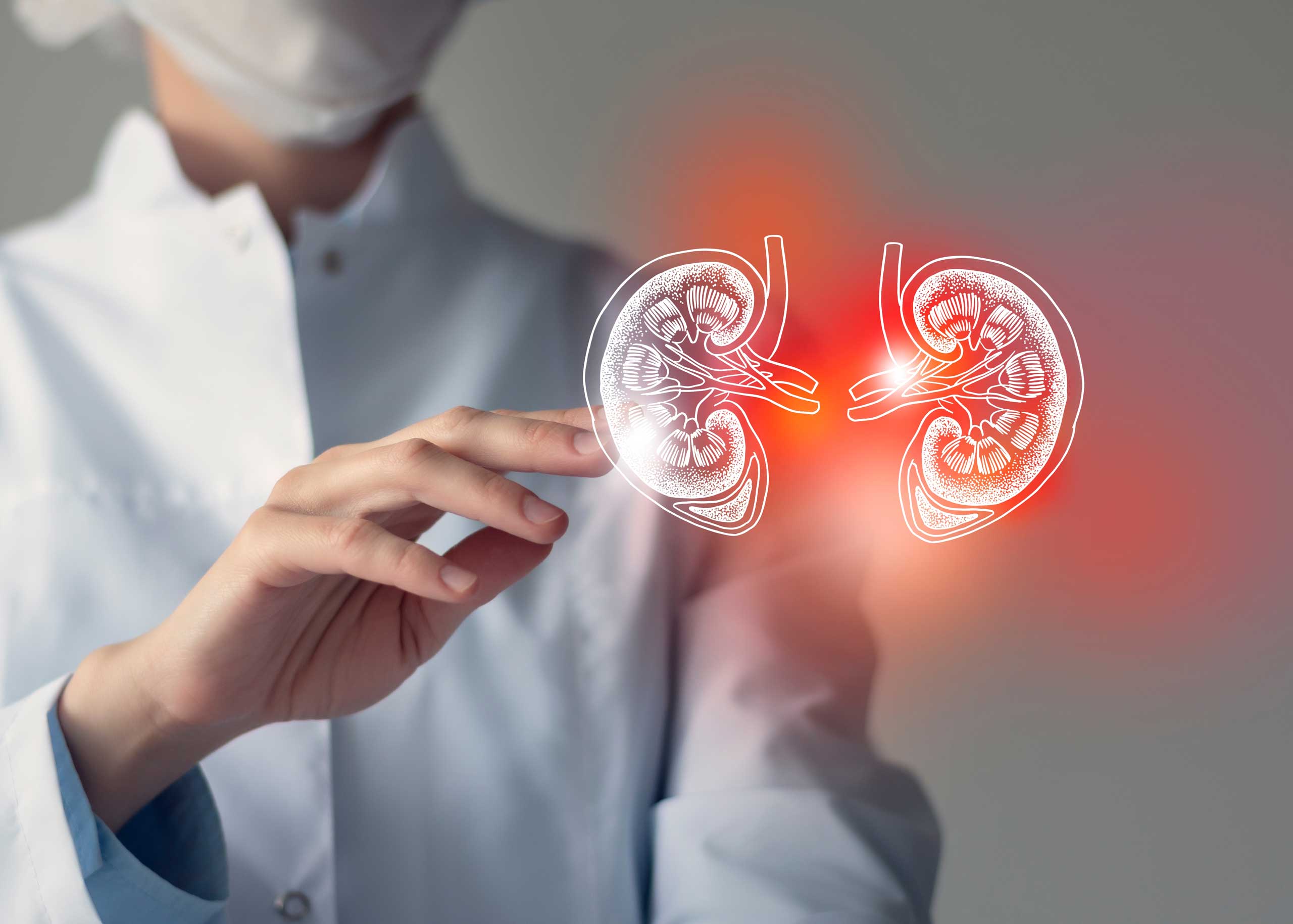Kidney Infection, also known as pyelonephritis, is a serious condition that affects the kidneys and can lead to significant discomfort and complications if left untreated. It occurs when bacteria, commonly from the lower urinary tract, travel up to the kidneys, causing infection and inflammation. Symptoms of pyelonephritis may include high fever, chills, back or abdominal pain, frequent urination, and cloudy or bloody urine. Timely diagnosis is crucial, and healthcare providers often rely on symptoms, medical history, and laboratory tests to identify the infection. Treatment typically involves a course of antibiotics to eliminate the bacteria, and in severe cases, hospitalization may be necessary. Good hygiene practices, staying well-hydrated, and seeking prompt medical attention are essential in preventing and managing this condition.
Understanding Kidney Infection
Understanding the causes and effective management of kidney infections (pyelonephritis) is of utmost importance for our well-being. Knowing the factors that lead to these infections can help us take preventive measures to reduce our risks. Bacterial infections, such as E. coli, are common culprits, and being aware of how they enter the kidneys can empower us to maintain good hygiene and make informed choices about our health. Additionally, early diagnosis and timely treatment can prevent the infection from progressing to more severe stages. Proper management, which may involve antibiotics and supportive care, is crucial in ensuring a smooth recovery and reducing the risk of complications. By understanding the causes and effective management of kidney infections, we can take proactive steps to safeguard our kidney health and overall well-being.
Common Causes of Kidney Infections
One of the most common causes of these infections is bacteria. Specifically, they usually start in the lower urinary tract, like our bladder, and then travel up to our kidneys, causing trouble along the way. Some of the typical symptoms we might experience include a high fever, chills, back or abdominal pain, frequent urination, a burning sensation during urination, and even cloudy or bloody urine. Knowing these symptoms can help us identify the problem early on.
When it comes to the specific bacteria involved, Escherichia coli (E. coli) takes the leading role, and other bacteria normally hanging out in our intestines can be culprits too. It’s essential to understand how these bacteria make their way to the kidneys, as it can help us take preventive measures. Good hygiene practices, staying well-hydrated, and urinating frequently can be our allies in keeping those pesky bacteria at bay. So, let’s be mindful of these common causes and stay proactive in maintaining our urinary tract health!
Diagnosis and Tests
Diagnosing a kidney infection (pyelonephritis) is a vital step in providing prompt and effective treatment. Healthcare providers use a combination of methods to accurately identify the infection and its underlying cause:
- Assessment of Symptoms and Medical History: The first step in diagnosis involves listening to the patient’s symptoms and reviewing their medical history. Common indicators of pyelonephritis include high fever, chills, back or abdominal pain, frequent urination, pain or burning sensation during urination, and cloudy or bloody urine. Gathering information about the patient’s previous medical conditions and any urinary tract issues can also provide valuable insights.
- Physical Examination: A thorough physical examination may be conducted to check for tenderness or sensitivity in the kidney area and assess overall health.
- Urinalysis: Urinalysis is a crucial test to detect the presence of bacteria, white blood cells, red blood cells, and other substances in the urine. Abnormal findings can indicate a kidney infection.
- Urine Culture: A urine culture involves growing the bacteria from a urine sample in a lab setting. This test helps identify the specific bacteria causing the infection and determines the most appropriate antibiotic for treatment.
- Imaging Tests: In some cases, healthcare providers may recommend imaging tests such as ultrasound or CT scan to get a detailed view of the kidneys and the urinary tract. These tests help assess kidney health and identify any abnormalities that might be contributing to the infection.
Management and Treatment
When it comes to management and treatment of infections, the first step usually involves a course of antibiotics. The specific choice of antibiotic depends on the severity of the infection and the type of bacteria causing it. The goal is to eliminate the infection and prevent it from spreading further. In more severe cases, hospitalization may be necessary, where patients can receive intravenous antibiotics and additional supportive care to aid in their recovery.
In addition to the antibiotics, managing the symptoms is also essential. Pain relievers and fever reducers may be recommended to help alleviate discomfort and reduce fever during the recovery process. Proper symptom management not only helps patients feel more comfortable but also allows the body to focus on fighting the infection effectively.
It’s crucial to follow the treatment plan prescribed by healthcare professionals to ensure a successful recovery and to prevent any potential complications. If you suspect an infection or experience concerning symptoms, it’s essential to seek medical attention promptly to receive appropriate management and treatment.
Preventing Kidney Infections
Kidney infections can be quite uncomfortable and even dangerous if left untreated. But the good news is that there are simple steps you can take to prevent them. Let’s explore some easy prevention tips:
- Maintain Good Hygiene: Personal hygiene plays a crucial role in keeping infections at bay. Make sure to wash your hands regularly, especially before eating and after using the bathroom. For women, wiping from front to back after using the bathroom helps prevent harmful bacteria from entering the urethra.
- Stay Hydrated and Urinate Frequently: Drinking plenty of water helps keep your urinary system healthy. It’s essential to stay well-hydrated as it can help flush out bacteria from your bladder and urinary tract. After sexual intercourse, try to urinate to help get rid of any potential bacteria that might have entered your urinary system.
- Don’t Hold Urine for Too Long: Holding in urine for extended periods can create a breeding ground for bacteria. When you feel the urge to urinate, make sure to use the restroom promptly. And when you do, make sure to empty your bladder completely.
Living with a Kidney Infection: Nurturing Your Health and Well-being
Living with a kidney infection requires attention and care to support the healing process and prevent future occurrences. Follow your healthcare provider’s advice carefully, which includes completing the full course of antibiotics. This helps ensure that the infection is completely eradicated.
Maintaining a healthy lifestyle is equally important for kidney health. Stay hydrated by drinking plenty of water and adopt a balanced diet to support your overall well-being.
Regular follow-up appointments with your healthcare providers are crucial. These visits allow them to monitor your kidney function and catch any potential issues early on.
If you experience any symptoms or have concerns about your health, don’t hesitate to seek medical attention promptly. Addressing any problems early can make a significant difference in your recovery and overall health.
In conclusion, it is crucial to approach kidney infections (pyelonephritis) with the seriousness they deserve and follow the prescribed medical advice diligently. Consulting a healthcare professional is vital for personalized guidance and treatment tailored to your specific needs. Your health is invaluable, and by being proactive in preventing kidney infections and seeking timely treatment, when necessary, you can ensure a smooth journey to recovery and overall well-being.
If you are in Abu Dhabi and need expert guidance or treatment for kidney-related concerns, you can trust the experienced Nephrologists and Urologists at Medeor Hospital. To book an appointment, you can call or WhatsApp 80055.
Remember, taking care of your kidneys is a vital step in maintaining your overall health, so don’t hesitate to seek the medical support you need.
Remember, your health matters, and making informed choices today will lead to a healthier tomorrow.







